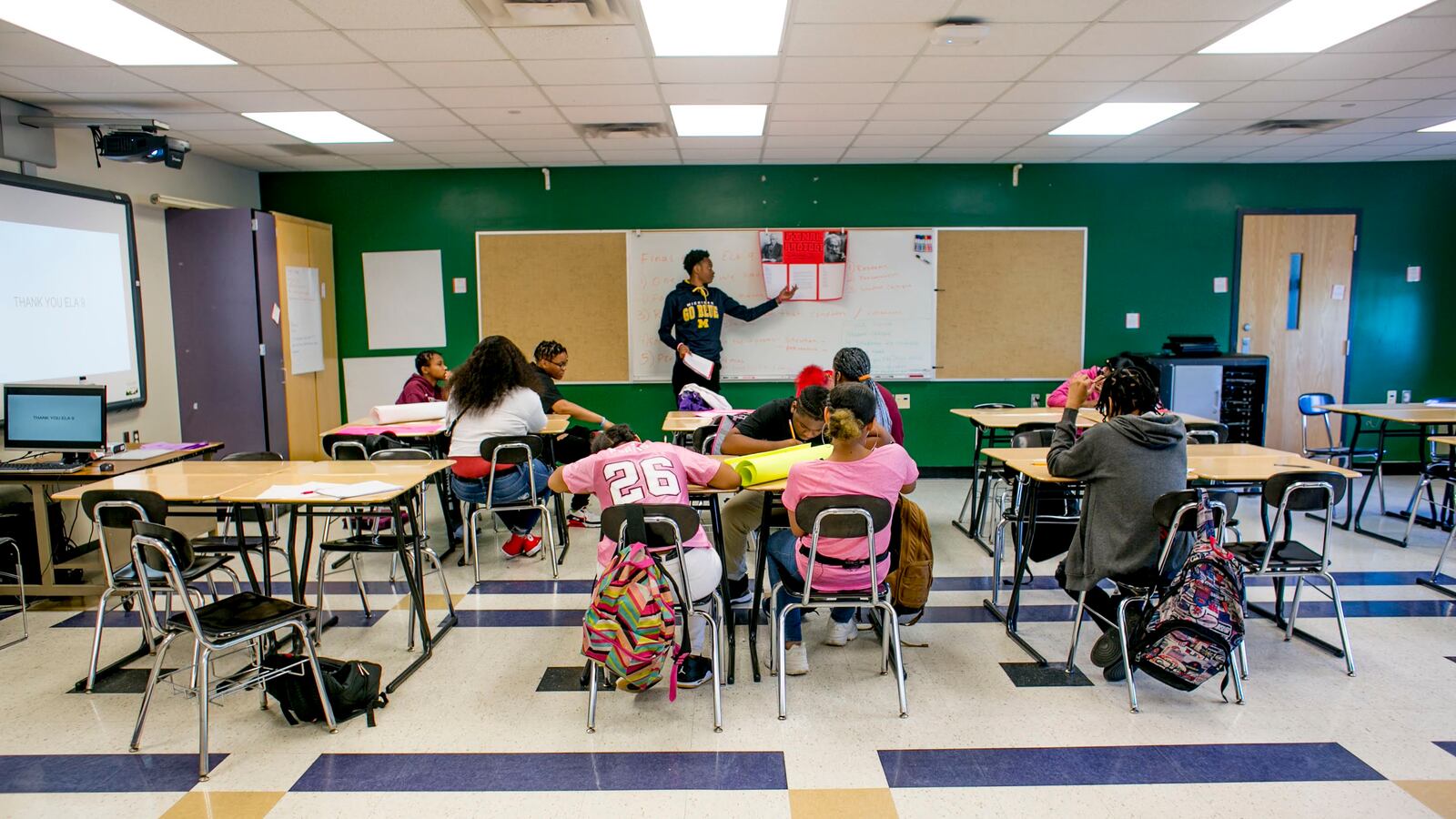A proposed new evaluation system for Detroit teachers would give students in some grades a say in how their teachers are rated.
Feedback from students in grades 3-12 is among the features of a new teacher evaluation system, called Thrive for Teachers, that the Detroit Public Schools Community District plans to officially begin using during the 2020-21 school year.
The new system, which was discussed Monday during a school board curriculum committee meeting, would also feature stronger guidance on how school leaders should observe teachers and a new component that would rate teachers on their engagement in the school community.
The committee OK’d the plan and moved it forward to the full school board for approval.
The new system is important because teachers for several years have complained that the existing evaluation was ineffective and did little to improve teaching. Some have brought their complaints to the district’s school board during its monthly meetings.
According to materials included with the agenda for Monday’s meeting, “Consistent feedback trends indicate that the current evaluation system is perceived to favor certain groups of teachers in certain content areas or grade levels, comprises activities or tools that are not meaningful, and does not lead to consistent feedback with ongoing development opportunities.”
During Monday’s meeting, Superintendent Nikolai Vitti said the student survey results would account for 10% of a teacher’s evaluation.
“We would survey students to ask them questions about the level of engagement, the quality of instruction,” Vitti said. “This just creates more accountability and empowers student voice in what happens in the classroom.”
The district has been surveying students on these issues the last two years, but the results haven’t been used in evaluations.
The overall goal is to develop a system that does more than just rate and score teacher performance, according to the agenda item.
“Throughout each annual evaluation process, teachers can expect to engage in regular conversations with leaders about their growth and receive individualized professional development. Likewise, teachers will be empowered to use the evaluation system and its tools to reflect on their own practices and seek out additional support where needed.”
Lakia Wilson, executive vice president of the Detroit Federation of Teachers, raised one concern during the meeting, saying the system treats all teaching disciplines the same.
“The issue with the tool is that it’s generic and it does not reflect each discipline,” Wilson said. “The social workers tool is the same as the psychologists tool. So, when they’re meeting with their supervisors to complete their end-of-the-year evaluation, it does not reflect their jobs.”
Vitti had earlier noted that the evaluation system was developed during the last school year with feedback from teachers and the union.
A teacher can earn 100 points under the system, with 10 of those points coming from the student surveys. Another 40 points will be based on the amount of improvement students have on standardized exams, with 40 points based on classroom observations and 10 points based on their commitment to the school community. The plan would make it easier for teachers to keep track of the points they accumulate so there are no surprises at the end of the school year.
The 40% dedicated to student improvement data aligns with guidance from the Michigan Department of Education, the district said. Currently, state law requires 25% of a teacher’s evaluation to be tied to student improvement data, but that is expected to rise to 40% for the 2020-21 school year, unless lawmakers take action to make a change. There have been efforts to lower the percentage, primarily by lawmakers who believe the 40% threshold is too high.


